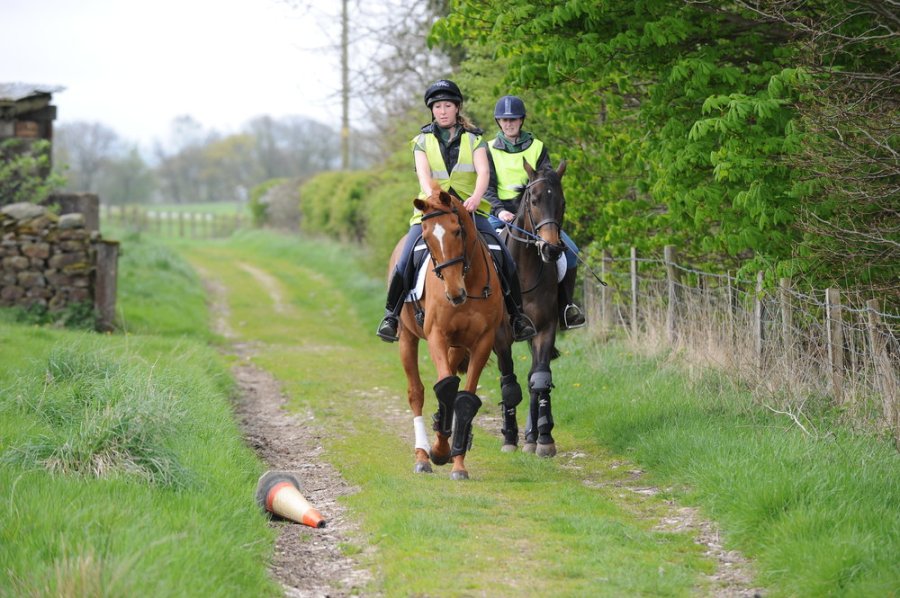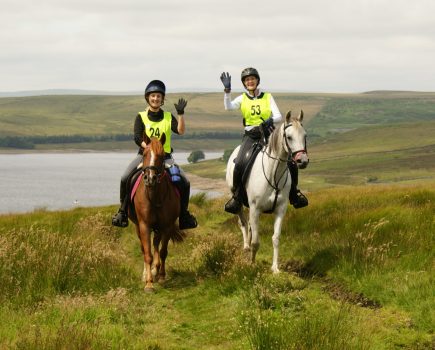If your horse exhibits behaviours such as spooking or rushing, going out for a hack may be far from the relaxing and fun exercise that it should be.
Behaviour consultant Ben Hart explains how to cope with such circumstances.
Taking a good look
If your horse stops suddenly when he sees an object he’s unsure of, or tends to spook, how you deal with it depends on the kind of relationship you want with your horse and what are realistic expectations of your horse’s behaviour.
If he’s stopping and looking, he’s communicating concern about what he sees and you need to listen to him. Allow him to look and then calmly move on. That way he will learn there is nothing to worry about.
Following a training plan designed to build his confidence and trust by getting him used to a variety of different situations and strange objects will be beneficial. If you do this work he’ll feel more confident in himself and have greater trust in you. It also means that he won’t feel the need to stop and look so much when you’re out hacking.
‘Go fast, but not that fast’
If you’re dreaming of steady, harmonious canters, but your horse has other ideas, it can be a difficult thing to communicate.
Provided your horse is not rushing because he’s nervous or frightened of things, there are two elements that are key to solving this.
Firstly, you need to find a way to communicate to him what the correct speed in canter is. Second, you need to practice that correct speed.
Practice pressure release
I recommend teaching horses to work on the lunge with two lunge lines attached, because this more closely resembles some of the signals given while riding. This way you can safely practice walk, trot and canter transitions from the ground.
Practice cantering 20m circles on the lunge and using the two lines to release pressure when your horse is at the correct speed. When he learns to maintain the right speed, just bring him back to walk.
Through this training you can help your horse maintain the right speed before you begin to practice while riding him.
When you go out on hack, don’t lose sight of the fact that you’re practicing – your horse is still in training until this becomes second nature to him.
Don’t miss the latest issue of Your Horse Magazine, jam-packed with training and veterinary advice, horse-care tips and the latest equestrian products available on shop shelves, on sale now.









